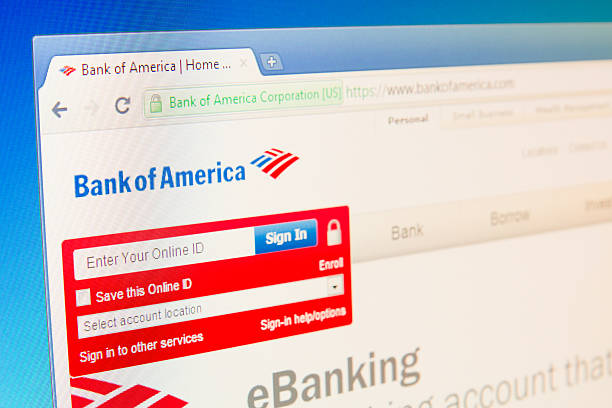US Dental Insurance Buying Guide | Are Dentist Discount Programs Worth It? How to save money without insurance
Dental insurance in the United States is separate from medical insurance. Although some medical insurance may include benefits for some dental services, most of the time dental insurance needs to be purchased independently (stand-alone plan).
The US Health Care Act believes that dental insurance is not a required health benefit for adults 19 years of age or older, and insurance companies may not provide adults with dental insurance options. Even during Obamacare, dental insurance was not mandatory, and there were no penalties for not buying it.
Therefore, many international students have compulsory medical insurance, but they may not have dental insurance. In China, I believe that most people do not have the habit of seeing dentists regularly. Many people register temporarily when they have a toothache. where. When it’s okay, people generally don’t think about going to the dentist.
Image from Matthews Family Dentistry, copyright belongs to the original author
However, in many cases, you may not feel any problems such as minor tooth decay and periodontitis, but if you wait until you have a toothache before going to the dentist, you may not be able to solve it simply by filling and cleaning your teeth. Not only did he suffer, but he had to spend more money for treatment, which was not worth it. It is better to visit the dentist regularly for oral examinations, and to deal with minor problems immediately will save trouble and money.
Now a certain Rain is here to do his homework for his friends and answer the question that everyone wants to know most: how to buy dental insurance in the United States? How is a dentist discount program different from dental insurance? Is it worth buying dental insurance or a discount plan? How to save money by visiting the dentist? How to say tooth cleaning, filling, and implant in English?
Dental Insurance
How to buy dental insurance?
First, if your employer provides health insurance and dental insurance benefits, ask HR how to buy health insurance. The insurance provided by the employer is group insurance, which is usually more favorable than the individual insurance purchased outside. The insurance reimburses more for the same premium, and there is no waiting period (waiting period) limit.
If you need to purchase your health insurance, here are some things to keep in mind:
The picture comes from Health Insurance, the copyright belongs to the original author
Insurance purchase websites to register for the next year’s insurance during the Open Enrollment Period (the open registration period, which is between November 1 and December 15 each year). plan. That is to say, the open registration period for medical insurance and dental insurance in 2019 has now passed. During the period from November 1, 2019, to December 15, you can register to purchase medical treatment that will take effect from January 1, 2020. Insurance and dental insurance plans.
eHealthInsurance.com is the largest online health insurance market in the United States. Although registration and purchase are not open for the time being, you can still check the prices and terms of local dental insurance plans on eHealth.
Image from Planned Parenthood, copyright belongs to the original author
If you miss the Open Enrollment Period, you will not be able to purchase any more for the current year unless you qualify for the Special Enrollment Period, such as a special event such as loss of job, loss of health insurance, moving house, marriage, birth or adoption of a child Health insurance.
Note: In the case of childbirth, health insurance can be purchased immediately after the child is born, not immediately after pregnancy.
If you qualify for the special registration period, usually within 60 days of the special event, you can sign up for medical and dental insurance that will take effect soon, otherwise, you will have to wait until the next open registration period to buy personal health insurance.
The only exception is that low-income people and people with disabilities can apply for the government’s Medicaid (commonly known as a medical white card) or CHIP (Children’s Health Insurance Plan) program, which does not have any registration time limit.
How to choose dental insurance?
The options of dental insurance in the United States are similar to medical insurance, and maybe relatively simple. Generally, there are some insurance terms:
- In-network: In the network, the reimbursement of the clinics that have a partnership with insurance, if you want to see a designated dentist, it is best to check whether the doctor is in the network;
- Out-of-network: Out-of-network, reimbursement is usually less than in-network clinics or even no reimbursement;
- Deductible: The part that you need to pay before the insurance starts to reimburse the expenses, recalculated every year;
- Coinsurance: The part that needs to be paid for by the specific service is in the form of a percentage, which is determined according to the actual charge. Usually, the deductible is paid first and then the coinsurance is calculated;
- Out of Pocket Maximum: The capped amount of out-of-pocket expenses, which is recalculated every year;
- Maximum Annual Benefit: The maximum annual benefit paid by insurance, most dental insurance offers an annual ceiling of $1000~$1500;
- Waiting Period / Exclusion Period: The waiting period is written in the fine-text description of many dental insurances. Some items need to be insured for more than 6 months to 12 months to be reimbursed. Many insurance class II and III projects will have this limitation;
- HMO: Similar to medical insurance, HMO insurance is relatively cheap, and the out-of-pocket costs after visiting the dentist will be lower, but it usually does not reimburse out-of-network clinics;
- PPO: PPO insurance does not have the network restrictions of HMO insurance, and out-of-network clinics will also reimburse part of it, but the premiums are relatively expensive.
What does dental insurance reimburse?
Dental insurance generally divides reimbursement for services that people need to see a dentist into four classes of services:
Class I (Preventive): Class I preventive diagnosis items, most dental insurance reimburses 80%~100%, good insurance can reimburse 100% + deductible, usually includes the following services:
- Oral examination (Exam)
- Full-Mouth X-Rays, usually limited to 1 reimbursement per year
- Routine Cleanings/Prophylaxis, usually limited to 2 reimbursements per year
- Deep cleanings (Periodontal Maintenance/Deep Cleanings), classified as Class II by some insurances
- Topical Fluoride/Fluoride Varnish
- Sealants may be limited to under 19 years of age,
- Space Maintainers, some insurances are classified as Class II and usually limited to under 19 years of age
Class II (Basic): Class II basic rehabilitation care programs. Most dental insurance reimburses 70% to 80%. There may be a waiting period of more than 6 months. Good insurance can reimburse more than 80% without the waiting period. The items include:
- Restorative Fillings
- Extraction/Oral Surgery
- Root canal treatment (Root Canal/Endodontics), some insurance classified as Category III
Class III (Major): Class III large-scale restorative care programs. Most dental insurance only reimburses 50% or less, and there is likely to be a waiting period of more than 12 months. Some programs are not even reimbursed. Items include:
- Complex Oral Surgery, such as Wisdom tooth Extraction, may also be classified as Class II
- Periodontics (Periodontics), such as Gingival Graft/Gum Graft, Bone Grafting, etc.
- Crowns, Porcelain Teeth (Crown)
- Bridge
- Dentures
- Implant
Class IV (Orthodontia): Class IV orthodontic items, this type of reimbursement is usually calculated separately from the reimbursement of the above three categories of items, with a Lifetime Maximum, which is different from the annual reimbursement ceiling and is usually limited to those under the age of 19:
- Braces
What does dental insurance not cover?
Dental insurance generally does not reimburse Cosmetic Dentistry programs because they are not Medically Necessary, such as:
- Teeth Whitening
- Dental Veneers (Porcelain Veneers)
- Invisalign
- Bonding, which may be reimbursed if it is restorative
How much does dental insurance cost?
According to statistics, the average cost of dental insurance in the United States is $360/year, and the monthly fee for individual insurance plans is mostly 20~$60/month.
Let’s take Delta Dental as an example to compare the three personal dental insurance plans quoted locally by a Rain:
The picture comes from Delta Dental, the copyright belongs to the original author
Some sharp-eyed friends may have found out that comparing the first one with the third one, why is the monthly fee more expensive even though the benefits are less (higher deductible and less annual benefit max)? The difference is that the second and third plans specify a network of PPO clinics, while the first plan specifies a network of Premier clinics that is wider than that of the PPO, with more choices of dental clinics. But if there are enough clinics in the PPO network, it is more cost-effective to choose cheaper insurance.
In addition, some dental insurances also have incentive incentives. If you purchase insurance continuously for more than one year, the reimbursement amount and benefits of some items can be increased year by year. For example Spirit Dental’s Network 1200/2500/5000 dental insurance plans.
The picture comes from spiritual, the copyright belongs to the original author
In the first year, the reimbursement for basic/major/corrective items is 50%/10%/10%, with an annual maximum reimbursement of $1,200; if you purchase two consecutive years, the reimbursement percentage increases to 60%/30%/ 25%, and the annual ceiling increases to $2500; the third year goes up to 80%/50%/50%, capped at $5000.
Dental Discount Plans/Dental Savings Plans
Image from Shutterstock, copyright belongs to the original author
In addition to dental insurance, friends can choose to purchase a dental discount plan. Unlike insurance, which needs to be registered and purchased at a fixed time each year, dental discount plans are generally purchased at any time and take effect at any time ( some may also have a 7-10 day waiting time).
In addition, because the discount plan does not reimburse customers for expenses like insurance when customers visit a clinic participating in the plan (in the network), they can directly get a lower discounted price, and there is no cap like insurance.
Differences Between Dental Insurance and Dentist Discount Programs
You can find local dentist discount plans at DentalPlans.com.
PS, if you have a Costco membership card, you can compare whether the dentist discount plan provided by Delta Dental specifically for Costco members is more cost-effective.
Is it better to buy dental insurance or a discount plan?
Let’s use the actual numbers to figure out whether it’s a good deal for dental insurance or a dental discount plan.
The following is a quotation table of a discount plan with an annual fee of $99 that can take effect immediately:
The picture comes from DentalPlans, the copyright belongs to the original author
Compare this dentist discount plan (cost $99/year) with the previous Delta Dental Exclusive PPO dental insurance (cost $34/month) at the Average Price (average price for each service) in the discount plan quote.
Suppose I have one X-ray, two checkups and cleanings, and one regular filling in a year.
The total cost of choosing a dentist discount plan for one year is as follows:
- $99(annual fee) + $59(X-ray) + $19(examination) x 2 + $44(cleaning) x 2 + $59(filling) = $343
Select the total cost of dental insurance:
- $34(monthly fee) x 12 + $0(X-ray) + $0(examination) x 2 + $0(cleaning) x 2 + $169(filling) x 30% = $458.7
Total cost without insurance out-of-pocket:
- $152(X-ray) + $58(Exam) x 2 + $105(Scaling) x 2 + $169(Filling) = $647
Bottom line: Buying dental insurance and a dentist discount program is still a good deal if you take the time to visit your dentist regularly, have checkups, and have your teeth cleaned every year. Judging from the above quotations, although choosing a dental discount plan will cost more money each time you go to the dentist, it will be cheaper overall. Of course, if the dental insurance is provided by the employer and saves the monthly fee, then only 30% of the filling cost ($50.7) is required for the whole year, which is of course more economical for dental insurance.
But friends should also consider that if you need major surgery in a certain year, such as root canal treatment + braces, dental implants, etc… Insurance reimburses 50%, and the annual ceiling is only $1000~$1500, only insurance may not be enough to cover.
Finally, I would like to remind you that before choosing a dental discount plan, you must check the network range to see which dental clinics accept this plan, and it is best to contact the dental clinic directly to find out if you accept this plan and whether the specific charges are related to Quotes on the discount plan are consistent.
Note: Different places and different insurance companies have different quotations for dental insurance or dental discount plans. It is recommended to compare which is more suitable for you based on the information found on the official website.
How can I save money on going to the dentist without insurance?
haggle with the dentist
If you need to see a dentist temporarily and have not had time to buy insurance or a dental plan, you can call the dental clinic directly to inquire about the price. Some clinics may provide their discount plan, or have a cash discount ( direct payment discount), many times There will also be a payment plans option.
Call a few more clinics to consult and compare prices, and compare whether it is cost-effective to pay directly or buy a savings plan first.
Image from HealthCare BlueBook, copyright belongs to the original author
In addition, you can first check the average local charges for similar services on FairHealthConsumer.org or HealthCareBlueBook.com based on the zip code. If the clinic’s quotation is higher than it, then this is also a good bargaining basis.
Local low-cost dental clinic
Image from Toothwisdom.org, copyright belongs to the original author
ToothWisdom.or can be searched for local low-cost dental clinic information.
Information on local government-funded community medical centers can be found at HRSA.gov.
DentistryFromTheHeart.org publishes information on dentists and clinics that provide non-profit dental services in various places.
211. org is a community hotline organized by the public welfare organization UnitedWay. You can call 211 to inquire whether there are some free or low-cost dental welfare programs in the local area and whether there is any information about such clinics.
Dental school
The picture comes from quotes, the copyright belongs to the original author
Find your local Dental School or Dental Hygiene School. Most dental schools or dental hygiene schools discounted dental services, including scaling, fillings, extractions, root canals, and implants. Various services are much lower than those offered by outside clinics. The price is to train the interns (but there will be experienced tutors watching and guiding them), and if you are lucky, you may also meet graduates or professors to demonstrate.





